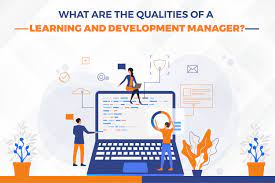Introduction
Learning and Development Jobs is a critical function within modern organizations that focuses on enhancing employees’ skills, knowledge, and overall performance. In today’s competitive business environment, companies cannot thrive without investing in the growth and development of their workforce. Learning and Development Jobs ensures that employees are equipped with the right tools, knowledge, and competencies to meet both current and future organizational goals.
L&D plays a pivotal role in employee engagement and retention. When employees feel that their growth is valued and supported, they are more motivated, productive, and committed to the organization. Moreover, organizations that prioritize learning and development experience long-term benefits, including higher performance, improved innovation, and a stronger organizational culture.
At its core, L&D involves designing, implementing, and monitoring training programs tailored to meet the needs of the workforce. Professionals in this field analyze skill gaps, create learning solutions, and continuously evaluate the effectiveness of training initiatives to ensure employees are performing at their best. In essence, Learning and Development Jobs is the bridge between an organization’s strategic goals and its employees’ professional growth.
Key Responsibilities of L&D Professionals
Learning and Development Jobs professionals play a vital role in shaping the skills and performance of employees within an organization. Their responsibilities go beyond simply conducting training sessions—they strategically ensure that employees are equipped to meet both individual and organizational goals. Some of the key responsibilities include:
- Conducting Training Needs Analysis
L&D professionals begin by identifying skill gaps and assessing the learning needs of employees. This involves evaluating performance metrics, gathering feedback, and analyzing organizational goals to determine where training interventions are required. - Designing and Delivering Training Programs
Once needs are identified, L&D specialists design tailored training programs. These can be delivered online, in-person, or through a blended approach. The programs are created to enhance knowledge, improve skills, and foster professional growth. - Evaluating Training Effectiveness
Measuring the impact of training is a critical responsibility. Learning and Development Jobs professionals track performance improvements, gather participant feedback, and adjust programs to ensure they deliver measurable results and contribute to business objectives. - Coaching and Mentoring Employees
Beyond formal training, L&D professionals often provide coaching and mentoring to employees. This helps individuals apply their learning in real-world scenarios, build confidence, and grow within their roles. - Collaborating with Management
Learning and Development Jobs do not operate in isolation. Professionals work closely with management and department heads to align learning initiatives with business goals. This ensures that the workforce is prepared to meet strategic objectives and respond effectively to organizational challenges.
In summary, L&D professionals are strategic partners in organizational growth. They combine analysis, design, delivery, and evaluation to create a skilled and high-performing workforce.

Types of Learning and Development Jobs
The Learning and Development jobs field offers a wide range of career opportunities, each focusing on different aspects of employee growth and organizational training. Here are some of the most common L&D roles:
- Learning and Development Jobs Specialist / Coordinator
Learning and Development Jobs Specialists or Coordinators are responsible for managing and delivering training programs. They organize workshops, schedule training sessions, and ensure employees have access to the learning resources they need. Their role often involves both administrative tasks and hands-on training delivery. - Instructional Designer
Instructional Designers create effective learning materials and e-learning courses tailored to organizational needs. They apply principles of instructional design to develop engaging content, from presentations and manuals to interactive online courses, ensuring that learning is both efficient and enjoyable. - Training Manager
Training Managers oversee the entire training strategy and the Learning and Development Jobs team. They set learning objectives, allocate resources, and ensure that training initiatives align with organizational goals. Their leadership ensures that training programs deliver measurable outcomes. - Talent Development Manager
Talent Development Managers focus on long-term employee growth and career progression. They design programs for skill development, succession planning, and leadership training, helping employees reach their full potential while contributing to organizational success. - Corporate Trainer
Corporate Trainers conduct workshops, seminars, and hands-on training sessions for employees. They are often the face of L&D programs, engagingly delivering content and providing practical guidance that employees can apply in their roles. - E-Learning Developer
E-Learning Developers specialize in building online learning content using tools like Articulate, Captivate, or other LMS platforms. They focus on creating interactive modules, simulations, and assessments that allow employees to learn at their own pace and convenience.
Each of these roles plays a unique part in developing a skilled, motivated, and high-performing workforce, making L&D a dynamic and rewarding career field.
Skills Required for L&D Professionals
A successful career in Learning and Development Jobs requires a combination of technical knowledge, interpersonal abilities, and strategic thinking. Professionals in this field need to master several key skills to effectively design, deliver, and evaluate training programs. Some of the most important skills include:
- Communication and Presentation Skills
Strong communication is essential forLearning and Development Jobs professionals. They must clearly convey ideas, instructions, and feedback to diverse audiences. Excellent presentation skills help engage learners and ensure that training sessions are effective and memorable. - Instructional Design Knowledge
Understanding instructional design principles is crucial. L&D professionals must know how to structure learning content, create engaging materials, and apply pedagogical strategies to maximize learning outcomes. - Project Management
Managing multiple training programs simultaneously requires project management skills. L&D professionals must plan, schedule, and coordinate training initiatives, ensuring they are delivered on time and within budget. - Coaching and Mentoring
Beyond formal training, Learning and Development Jobs professionals often provide coaching and mentoring. This helps employees apply what they’ve learned, develop critical skills, and grow professionally. - Familiarity with Learning Management Systems (LMS)
Proficiency with LMS platforms is increasingly important. L&D professionals use these systems to deliver online training, track learner progress, and analyze results to improve programs. - Analytical Skills to Measure Training Impact
Measuring the effectiveness of training initiatives is a core responsibility. Analytical skills enable L&D professionals to assess learning outcomes, identify gaps, and refine programs for maximum impact.
By mastering these skills, L&D professionals can create effective learning experiences that drive both employee growth and organizational success.
Qualifications Needed for L&D Jobs
A career in Learning and Development Jobs typically requires a combination of formal education and professional certifications. These qualifications help professionals build the knowledge and credibility needed to design and implement effective training programs.
- Educational Background
Most L&D roles require a bachelor’s degree in fields such as Human Resources, Education, Organizational Development, or a related discipline. This foundation provides essential knowledge of workforce management, teaching principles, and organizational behavior. - Professional Certifications (Optional but Beneficial)
While not always mandatory, certifications can significantly enhance career prospects and demonstrate expertise in the field. Common certifications include:- ATD (Association for Talent Development): Recognized globally, this certification focuses on instructional design, training delivery, and talent development.
- CPLP (Certified Professional in Learning and Performance): Designed for experienced L&D professionals, this certification validates skills in training design, implementation, and evaluation.
- SHRM or HRCI Courses: These certifications from the Society for Human Resource Management (SHRM) or HR Certification Institute (HRCI) help L&D professionals align learning programs with broader HR and business strategies.
By combining formal education with relevant certifications, Learning and Development Jobs professionals can strengthen their knowledge, stay updated with industry trends, and enhance their career growth opportunities.

Career Growth and Salary in Learning and Development Jobs
Learning and Development Jobs is a field with strong growth potential and competitive salaries, reflecting the increasing importance of employee development in organizations worldwide. Career progression in L&D typically follows a path from entry-level roles to senior management, with opportunities to specialize in areas like instructional design, e-learning, or talent development.
- Entry-Level Roles
Positions such as L&D Coordinator or Junior Trainer usually start with salaries ranging from $45,000 to $60,000 per year in the United States. These roles focus on supporting training programs, coordinating schedules, and assisting in content delivery. - Mid-Level Roles
Mid-level positions, such as L&D Specialist, Corporate Trainer, or Instructional Designer, offer salaries between $60,000 and $90,000 per year. Professionals at this level take on greater responsibility, including designing training programs, mentoring employees, and measuring the impact of learning initiatives. - Senior/Managerial Roles
Senior roles like Training Manager, Talent Development Manager, or Director of L&D command salaries from $90,000 to $150,000+ per year. These positions involve strategic planning, managing L&D teams, and aligning learning programs with overall business goals. - Industry Opportunities
L&D professionals are in demand across nearly every sector, including technology, healthcare, finance, education, and manufacturing. Organizations increasingly recognize the value of skilled employees, making L&D a stable and rewarding career choice.
With consistent growth in demand for skilled L&D professionals, this field offers not only competitive compensation but also opportunities for continuous learning and career advancement
How to Get Started in Learning and Development (L&D)
Starting a career in Learning and Development Jobs can be both exciting and rewarding. Whether you are entering the workforce or transitioning from another field, there are several steps you can take to build a strong foundation in L&D:
- Gain HR or Teaching Experience
Experience in Human Resources, teaching, or corporate training provides a solid base for understanding employee development. These roles help you learn about workforce management, training needs, and effective communication techniques, which are essential for L&D success. - Learn Instructional Design Tools and Techniques
Familiarity with instructional design software and e-learning tools, such as Articulate, Captivate, or LMS platforms, is highly valuable. Learning how to design, develop, and deliver engaging training content will make you a competitive candidate in the field. - Volunteer or Intern for Training Projects
Hands-on experience is key. Volunteering or interning for training initiatives, workshops, or corporate learning projects allows you to apply theoretical knowledge in real-world settings and build a professional portfolio. - Network with L&D Professionals
Building connections with experienced L&D professionals can provide insights, mentorship, and career opportunities. Attend industry conferences, webinars, and networking events to stay connected and learn from experts. - Stay Updated with Trends
The L&D field is constantly evolving. Keeping up with trends like e-learning, microlearning, AI-driven training, and personalized learning solutions ensures you remain relevant and can implement innovative learning strategies within organizations.
By following these steps, aspiring L&D professionals can gain the experience, skills, and knowledge needed to thrive in a dynamic and growing career field.
Trends in Learning and Development Jobs
The field of Learning and Development Jobs is constantly evolving as organizations adapt to new technologies, workforce expectations, and business challenges. Staying updated with these trends is essential for L&D professionals to remain effective and competitive. Some of the key trends shaping L&D jobs today include:
- Rise of E-Learning and Virtual Training
With remote work and digital transformation becoming the norm, e-learning and virtual training have grown significantly. Organizations are investing in online courses, webinars, and virtual workshops to make learning more accessible, flexible, and scalable. - Use of AI and Analytics to Track Learning Outcomes
Artificial Intelligence (AI) and data analytics are increasingly being used to monitor employee progress, personalize learning paths, and measure training effectiveness. These technologies help L&D teams make data-driven decisions and continuously improve learning programs. - Focus on Soft Skills Development
While technical skills remain important, employers are emphasizing the development of soft skills, such as communication, leadership, problem-solving, and emotional intelligence. L&D professionals are designing programs to help employees thrive in collaborative and dynamic work environments. - Emphasis on Personalized and Continuous Learning
Modern L&D strategies prioritize personalized learning experiences that cater to individual employee needs. Continuous learning programs, microlearning modules, and adaptive training solutions ensure that employees can grow at their own pace and stay updated with evolving job requirements.
These trends highlight the dynamic nature of L&D jobs and the need for professionals to be adaptable, tech-savvy, and forward-thinking. Embracing these developments allows L&D specialists to drive meaningful learning experiences and contribute to organizational success.
Conclusion
A career in Learning and Development Jobs offers a rewarding path for individuals who are passionate about teaching, mentoring, and fostering employee growth. L&D professionals play a crucial role in shaping a skilled, motivated, and high-performing workforce, directly contributing to organizational success.
With businesses increasingly prioritizing upskilling, reskilling, and continuous learning, the demand for L&D professionals is expected to grow steadily. For those who enjoy creating impactful learning experiences and helping employees reach their full potential, L&D is not just a job—it’s an opportunity to make a meaningful difference in the workplace.
FAQs
1. What are learning and development (L&D) jobs?
Learning and development jobs focus on training employees, improving skills, and creating educational programs within organizations.
2. Do I need a degree for L&D jobs?
Many roles prefer degrees in HR, education, psychology, or related fields, but experience in training or teaching can also qualify you.
3. Are L&D jobs in high demand?
Yes. Companies increasingly invest in employee training, making L&D roles some of the fastest-growing in HR and corporate development.
4. What skills do I need for a career in L&D?
Key skills include communication, instructional design, leadership, e-learning tools (like LMS platforms), and project management.
5. Can L&D jobs be remote?
Absolutely. Many positions, especially instructional designers and training specialists, are fully remote or hybrid.


